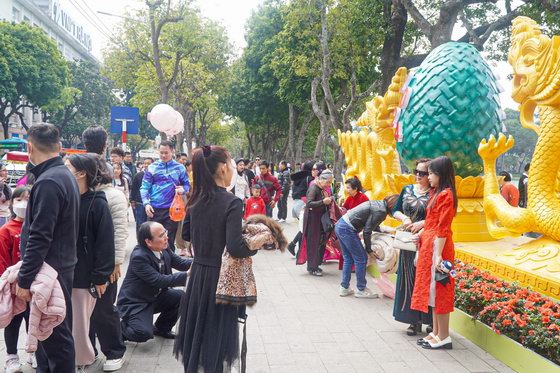|

Vietnam is generally considered a safe country for tourists, with a low rate of
violent crime. However, like any travel destination, it has specific safety and
security considerations that visitors should be aware of. Here's a breakdown:
Overall Safety:
• Low Violent Crime: Violent crime against foreigners is rare. Homicides
are practically nonexistent involving foreigners.
• Political Stability: Vietnam has a stable single-party socialist
republic system, and the government maintains law and order effectively. There's
a low risk of terrorism.
• Friendly People: Vietnamese people are generally friendly and
hospitable towards tourists.
Common Safety Concerns (Primarily Petty Crime):
• Petty Theft: This is the most common crime affecting tourists,
especially in crowded areas like markets, bus stations, and tourist attractions
in major cities (Hanoi and Ho Chi Minh City).
o Snatch-and-Grab: Thieves on motorbikes are known to snatch bags,
cameras, cell phones, and other valuables from pedestrians. This can sometimes
result in injury if you resist.
o Pickpocketing: Be vigilant in crowded places.
o Prevention: Keep valuables secured in a hotel safe, avoid displaying
expensive items, keep a firm grip on your bag, and be mindful of your
surroundings. Consider using a fake wallet.
• Scams:
o Taxi Scams: Be wary of rigged meters or overly expensive fares. It's
recommended to use reputable taxi companies (e.g., Mai Linh, Vinasun) or
ride-hailing apps like Grab.
o Confidence Tricks: Be cautious of overly friendly strangers who invite
you to their homes, as these can sometimes lead to gambling scams or other cons.
o "Drugged" Items: Avoid accepting chewing gum or snacks from strangers
on the street, as they may be laced with drugs.
• Traffic: Vietnamese traffic can be chaotic, especially in major cities,
with motorcycles seemingly going in all directions.
o Pedestrian Safety: Be extremely vigilant when crossing streets. Drivers
generally try to avoid hitting pedestrians, but accidents can happen.
o Scooter Rentals: While popular, renting a scooter is not recommended
for inexperienced riders as Vietnamese drivers often ignore traffic laws.
• Nightlife Safety:
o Watch your personal belongings in crowded areas.
o Never leave your drink unattended.
o Be wary of cheap or fake alcohol (methanol poisoning is a concern in Southeast
Asia).
o Avoid red-light districts.
o Don't engage in illegal activities, especially drug use, as penalties are
severe.
• ATMs: Be cautious when withdrawing money from ATMs, especially in
isolated areas. Use ATMs located inside banks or shopping centers.
• Hotel Break-ins: While less common, break-ins to hotel rooms can occur
even when guests are inside. Ensure your room is locked at all times.
Health and Other Considerations:
• Air Pollution: Air quality in major cities can be poor, especially for
those with respiratory issues. Consider wearing a mask.
• Food and Water Safety:
o Avoid drinking tap water; stick to bottled water.
o Be mindful of street food hygiene. Choose stalls with high turnover and
freshly cooked food.
o Traveler's diarrhea is common; carry rehydration salts.
• Mosquito-Borne Diseases: Dengue fever is prevalent in some areas
(Mekong Delta, Ho Chi Minh City). Use insect repellent, especially at dawn and
dusk. Malaria risk is higher in rural highlands.
• Sunburn and Dehydration: Vietnam's climate is hot and humid. Stay
hydrated and use sunscreen.
• Respect Local Customs: Dress modestly, especially when visiting
religious sites. Avoid public displays of affection. Do not take photos of
police, military, or inside government buildings without permission.
• Identification: Carry a copy of your passport and visa, leaving the
originals secured in your hotel. Many hotels require holding your passport as a
deposit, which is a normal practice.
• LGBTQ+ Safety: While socially conservative, Vietnam is generally
tolerant of the LGBTQ+ community. Avoid public displays of affection, as this
applies to heterosexual couples as well.
Recommendations for Foreigners:
• Exercise normal safety precautions.
• Be aware of your surroundings, especially in crowded tourist areas.
• Protect your valuables and avoid flaunting expensive items.
• Use reputable transportation (Grab or well-known taxi companies).
• Be cautious with food and water.
• Stay informed by checking travel advisories from your home country's
government.
• Consider travel insurance.
• Report any incidents to local police and your embassy/consulate.
Overall, Vietnam is a safe and rewarding travel destination, but being informed
and practicing common sense will significantly enhance your security and
enjoyment. |